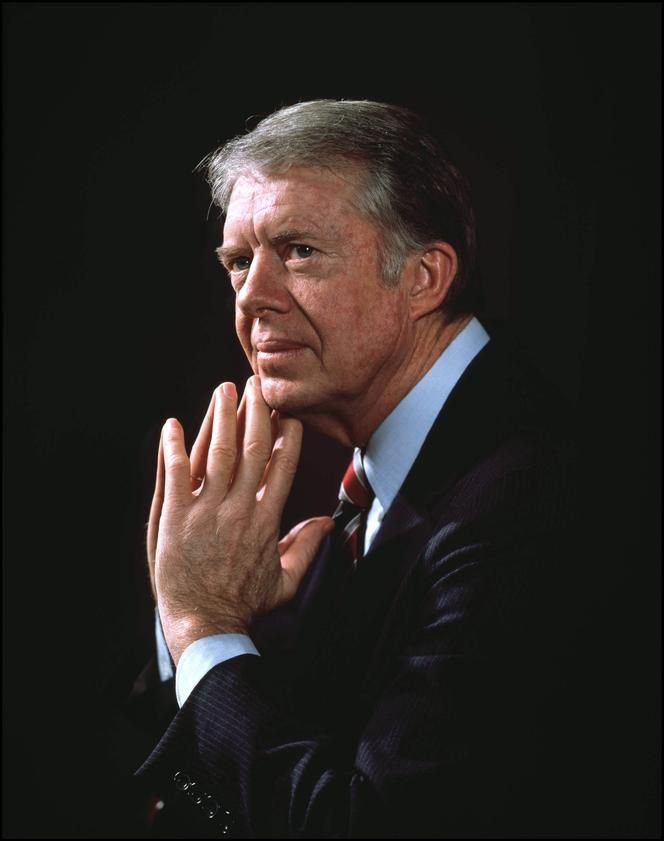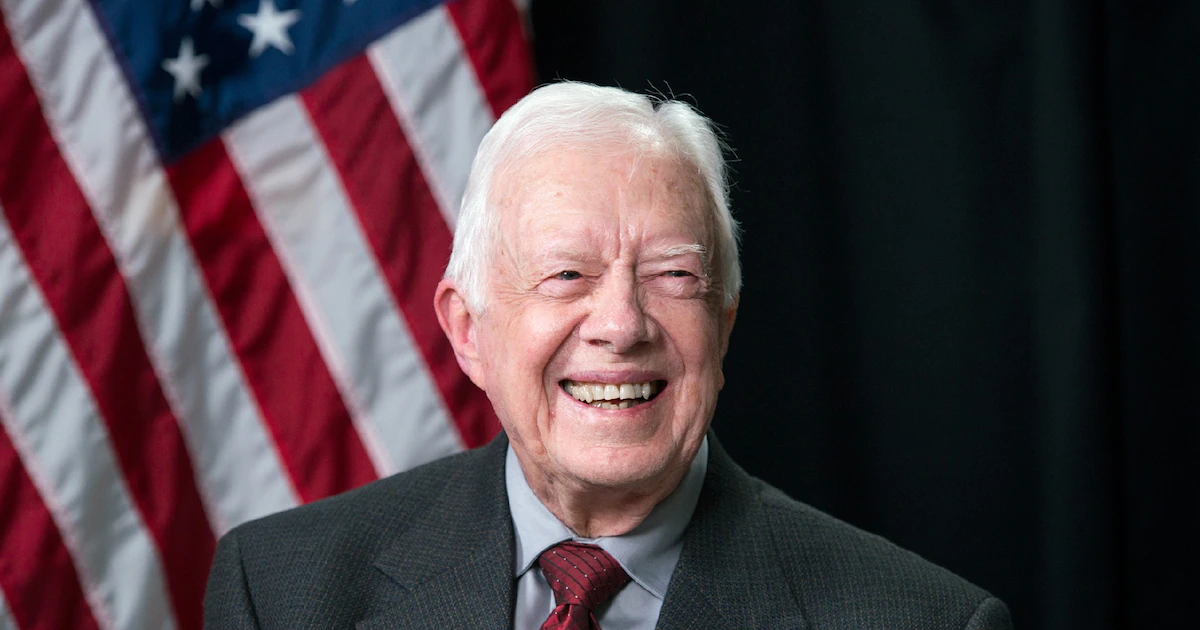Former U.S. President Jimmy Carter has passed away at the age of 100, marking the end of a life that profoundly impacted the history of the United States and the world. Away from the political spotlight after his presidency, Carter remained an iconic figure in humanitarian work, diplomacy, and human rights.
A Presidency Marked by Diplomacy and Human Rights Advocacy
Born on October 1, 1924, in Georgia, Jimmy Carter was elected as the 39th President of the United States in 1976, following the Watergate scandal that had shaken American politics. His term from 1977 to 1981 was marked by a series of challenges but also by moments where his humanistic and diplomatic approach made a difference on the global stage.
His most celebrated achievement remains the Camp David Accords, signed in 1978, which brought an end to a decades-long conflict between Israel and Egypt, earning him the Nobel Peace Prize in 2002. This historic act made Carter a key figure in international diplomacy, highlighting his belief that dialogue and diplomacy were the keys to resolving global conflicts.
However, his presidency was also overshadowed by the 1979 oil crisis and the hostage situation at the U.S. embassy in Tehran, which weakened his popularity and paved the way for Ronald Reagan’s victory in the 1980 election.
A Humanitarian Commitment After the White House
But Carter’s legacy is not confined to his presidency. After leaving the White House, he devoted his life to humanitarian causes, founding the Carter Center in 1982. This organization worked to promote peace worldwide, eradicate diseases like Guinea worm disease and malaria, and ensure free elections in numerous countries.
Carter was also a passionate advocate for human rights, leading initiatives to support vulnerable populations across the globe, from Africa to Latin America. Through his work with Habitat for Humanity, he helped build thousands of homes for underprivileged families.
A Model of Integrity and Service
What sets Jimmy Carter apart is his deep integrity and unwavering commitment to values of justice and peace. Far from political maneuvering, he consistently chose to follow his principles, advocating for foreign policy grounded in ethics and respect for human rights. His firm stance against using war as a solution to international crises, his defense of democracy, and his support for humanitarian efforts reflect a deeply humanistic vision.
In addition to his actions, Carter continued to influence the world beyond his presidency. His calm but resolute approach to conflict resolution, his mediations between rival powers, and his support for peace initiatives made him a respected voice on the international stage. He remained a symbol of the possibility of peace and diplomacy in a world increasingly divided.
A Legacy That Will Endure
Although he stepped away from the political scene, the name Jimmy Carter is still synonymous with hope and commitment to humanity. At 100 years old, he leaves an invaluable legacy — that of a man who dedicated his life to building a more just, compassionate, and peaceful world. His passing leaves a tremendous void, but his work through the Carter Center and his influence in promoting peace will continue to inspire future generations.
Rest in peace, President Carter. Your vision for the world, your humanity, and your determination to work toward a better future will remain in the memories of all and guide the actions of future world leaders.


